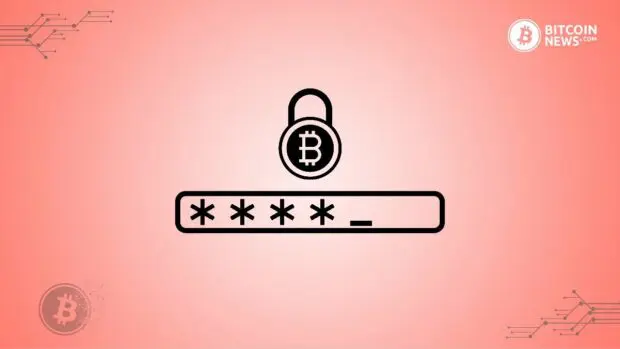Table of Contents
Introduction to Wallet Passphrases
Any person in possession of a Bitcoin recovery seed phrase can independently access the private keys and thus gain access to the bitcoin in it, regardless of the hardware or software used. Many Bitcoin users take additional measures to prevent the loss of bitcoin in case of theft or involuntary access to the recovery seed phrase. One way to protect the recovery seed is by using a passphrase.
What is a Passphrase?
Often, the pass phrase is also referred to as the 25th word. Contrary to what the name suggests, this designation is not accurate. Its use results in the creation of a completely new wallet when combined with the recovery seed. Unlike a seed word where there is a checksum, every passphrase is valid and generates a new wallet upon input. Therefore, it is not just a “password” for the seed but an essential part of the backup.
Advantages of a Passphrase
Primarily, using a pass phrase provides additional protection. If a thief finds the recovery seed backup with the 12 or 24 words, attempting to restore it without entering the pass phrase will open a different, empty wallet, as the actual wallet only opens when the pass phrase is used. Storing the seed phrase and pass phrase in different locations can minimize risks from a physical attack. Additionally, one could deposit a smaller amount of bitcoin as decoy or bait on the wallet that opens solely without the seed phrase, triggering an alert through a watchtower if moved.
Another advantage is that by using different pass phrases in combination with the same seed phrase, you can create as many wallets as you want. Since creating a seed phrase backup is usually more time-consuming than creating a pass phrase backup, this method efficiently generates various independent wallets.
Drawbacks of Using a Passphrase
The more complex one designs their security architecture, the greater the likelihood of something going wrong during wallet restoration, leading to unintentional loss of access to bitcoin. Ultimately, it’s crucial to weigh potential risks against each other. Historically, more bitcoin has been lost due to faulty storage or overly complex backup designs than through actual physical attacks.
A particular risk when using a pass phrase arises from the fact that, unlike the seed phrase, any possible input is valid. If a typing error goes unnoticed, it could have serious consequences in the future. For example, unlike seed words, extended seeds or pass phrases are case sensitive.
Additionally, it’s essential to consider scenarios where less technically inclined heirs might need to perform an independent recovery.
How to Secure My Passphrase?
As described earlier, the pass phrase is a crucial part of the backup to access your wallet. Losing it automatically means losing access to your bitcoin. Therefore, backing up the pass phrase should also follow the highest security standards. It is generally recommended to redundantly store it in different locations and to store it in corrosion-resistant and fire-resistant stainless steel.
A very user-friendly option for this is offered by SEEDOR. With a kit, the seed words can be stamped onto stainless steel discs along with their positions, and then stored in a robust and fire-resistant stainless steel capsule. Optionally, Seedor also offers the matching set of letter stamps with lowercase letters and special characters to secure complex pass phrases and password manager master keys.

Conclusion
Using a passphrase fundamentally provides a practical way to strengthen one’s own security architecture. Whether to use it or not is ultimately a personal decision. The risks and benefits must be weighed on an individual basis. If a pass phrase is used, proper backups should be created in any case to minimize the risk of loss of funds.










